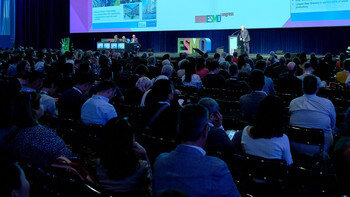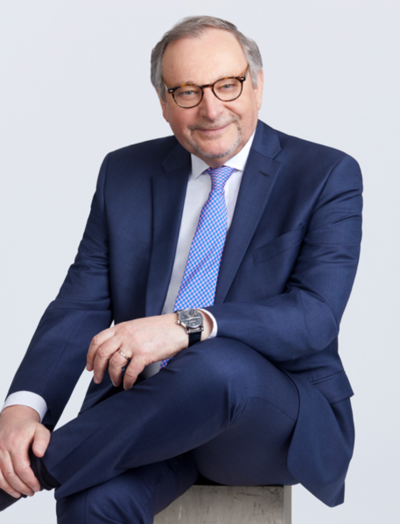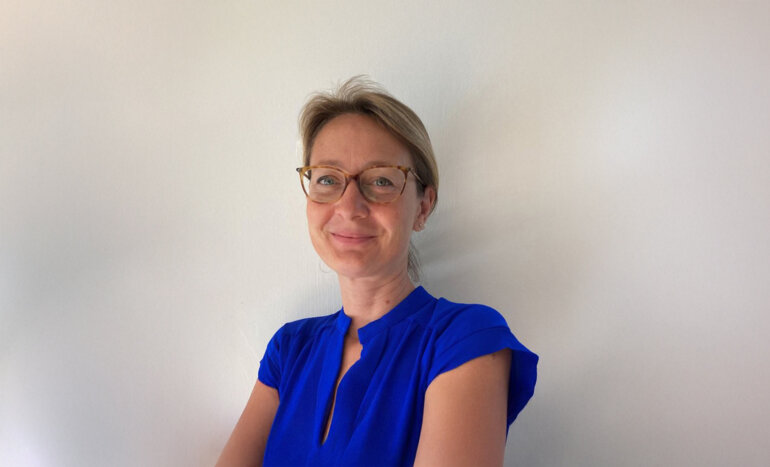In his Award Keynote Lecture at the European Lung Cancer Congress 2022, Prof. Fred R. Hirsch describes how ‘the tissue is still the issue’
Following in the footsteps of his first mentor, Prof. Heine H. Hansen, Prof. Fred R. Hirsch from the Center for Thoracic Oncology/Tisch Cancer Institute and Icahn School of Medicine at Mount Sinai, New York, NY, USA, has himself made an outstanding lifetime contribution to lung cancer research. In his Award Keynote Lecture for receiving the Heine H. Hansen Award 2022, he emphasises the importance of collecting biopsy samples at each stage of treatment for molecular testing to enable informed personalised treatment decisions.
What attracted you to work in lung cancer research?
Already at medical school in Copenhagen, Denmark, I knew I wanted to be involved in research and around the same time, my father-in-law developed small-cell lung cancer (SCLC) at a very young age. His doctor had just returned from the USA and was pioneering the development of chemotherapy and new treatments for SCLC. That doctor was Prof. Heine H. Hansen, and he then became my first mentor and stimulated my lifelong interest in lung cancer research.
I had already published several scientific papers when I finished medical school and Prof. Hansen encouraged me to join an active research group in the USA under the leadership of Dr John D. Minna. I completed part of my PhD at the National Cancer Institute in Washington before returning to finish the rest in Copenhagen, where I stayed for almost 20 years. I then returned to the USA, working at the University of Colorado with Dr Paul A. Bunn Jr, and I received one of the first International Association for the Study of Lung Cancer (IASLC) fellowships and from there my career flourished, as did my role in the development of IASLC as an organisation.
I feel blessed to have been supported by so many excellent mentors and colleagues and, even now, I find myself at the right place, at the right time, in my current research environment at Mount Sinai, where I am surrounded by a broad spectrum of expertise.
What do you consider to be your greatest career achievements to date?
As part of my PhD, I described the heterogeneity of lung cancer, particularly SCLC (Cancer 1982;50:1360–1366), and this research helped our understanding of lung cancer biology and the clinical impact associated with tumour variation. With Prof. Hansen, I also worked on the development of etoposide in SCLC; I was involved in a clinical trial (J Clin Oncol. 1987;5:585–591) that was one of the studies used for US FDA approval of etoposide, which still remains a cornerstone of SCLC treatment.
While working at the University of Colorado, I was heavily involved in research into EGFR as an important signalling pathway in lung cancer, both in preneoplasia as well as at the cancerous stage (J Clin Oncol 2003;21:3798–3807; Lung Cancer. 2003;41 Suppl 1:S29–42), and I have since been involved in many studies of EGFR inhibitors in non-small-cell lung cancer (NSCLC), including the study of necitumumab, which led to US FDA approval (Lancet Oncology 2015;16:763–774).
Following the approval of immune checkpoint inhibitors, evaluating PD-L1 status was an important clinical challenge. On behalf of the IASLC, I was coordinator of the Blueprint PD-L1 IHC Assay Comparison Project, a large international collaboration between industry and academia that aimed to harmonise the different available PD-L1 assays used for prediction of outcome to immunotherapy (J Thorac Oncol. 2017;12:208–222).
What do you think are the most important unmet needs in the management of lung cancer?
An important area is the early detection of lung cancer. In particular, we need to learn how to better implement lung cancer screening and how to develop more effective methods to identify high-risk individuals. In addition, there is still a requirement to optimise predictive biomarkers for several targeted therapies and immunotherapies. We should also identify new targets and learn about resistance mechanisms for active drugs, so we can design the right sequence. ‘The tissue is the issue’ is a phrase that has followed me for my whole career: it relates to the ongoing need to study tumour differences, to test individual tumour samples for genetic alterations and to further develop personalised precision medicine approaches.
Don't miss:
Heine H. Hansen 2022 Keynote lecture: The tissue is (still) the issue. European Lung Cancer Congress 2022
30.03.2022, h. 13:30 – 14:05, Congress Hall








